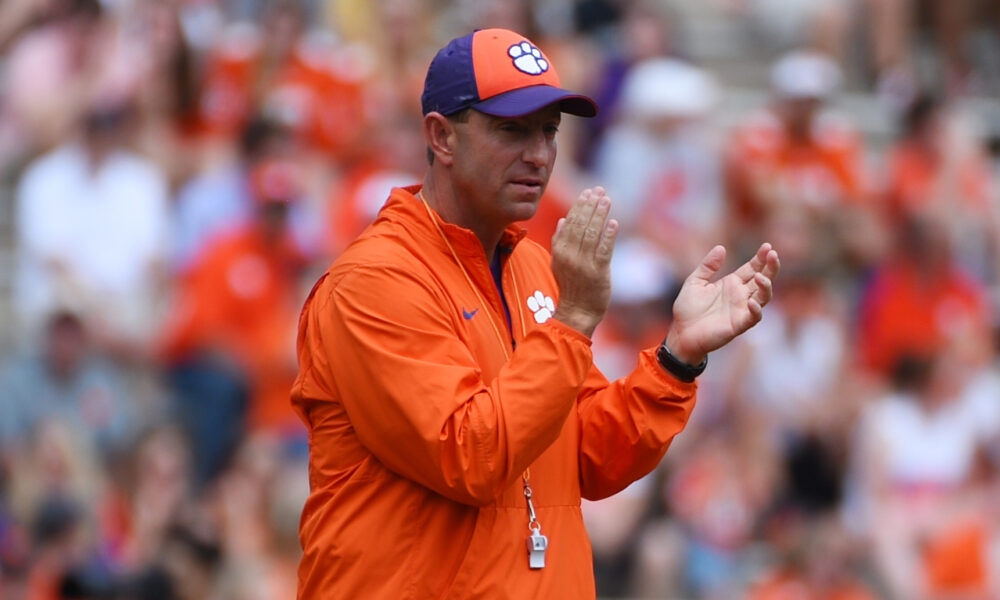SUNSET, S.C. — Count Clemson head coach Dabo Swinney among those who are a fan of college football’s new redshirt rule.
Last month, the NCAA approved legislation that will allow Division I college football players to play in up to four games without burning their redshirt for the season.
“I think it’s a great opportunity for us from a developmental standpoint — for every team,” Swinney said Tuesday at his media golf outing at The Reserve at Lake Keowee.
“You may have a guy that’s just not ready, but by the end of the year, this kid is really developed. He’s been through Power Hour, he’s matured, he’s mentally in a different place… Boy, it’s really nice to be able to say, ‘Hey, we’re going to be able to get you in a game.'”
Division I student-athletes have five years to play up to four seasons. Effective starting with the 2018-19 season, the new redshirt rule will let football players participate in a limited number of games without losing a season of eligibility.
The biggest positive of the rule in Swinney’s opinion is that it could help keep redshirt players motivated and engaged over the course of the season, knowing there’s a chance they could earn some playing time.
“The engagement from your redshirt guys I think will go to a whole other level,” Swinney said. “Guys that are redshirting, it’s hard, but we have a plan. In fact, we talk about it every fall camp, how we’re going to keep our kids engaged. I want to know what your plan as a position coach is weekly to keep him engaged, just so there’s a steady progression and he doesn’t feel like he’s not a part of it. So, I think that part really helps because now a guy knows he’s got a chance to get in the game.”
The new rule also promotes fairness for football student-athletes, as well as provides college teams with more flexibility in the event of an injury.
For instance, Clemson would have benefited from the rule had it been in place during the 2015 season, when defensive end Shaq Lawson suffered an injury in the first quarter of the College Football Playoff semifinal at the Orange Bowl. Swinney would have loved to replace Lawson with redshirt freshman defensive end Clelin Ferrell, but did not want to burn a whole season of his eligibility for just one game.
“The perfect example is Clelin,” Swinney said. “His freshman year, he’s coming off an ACL (injury) and he wasn’t quite ready. We drug him along for about three or four games trying to make a decision, and we’re like OK, let’s try to hold him. So we held him all year, and then we get down there to the Orange Bowl and Shaq got hurt. Cle could have helped us in the Orange Bowl. He was ready, but we would have lost a whole year at that time.
“So it’s nice to have that type of flexibility late in the year due to injuries, which I think was a big part of this rule because guys get hurt and you want to have more options. And I think another part is sometimes guys are not playing in bowl games and things like that… To have to play a guy for one game and lose a whole year, that’s not fair to the player.”
Among other positives of the rule is that it promotes health and well-being for players who might otherwise feel more pressure to play through an injury. It also gives younger players a chance to participate in limited competition and gain experience.
“I think there’s a lot that drove the decision (to pass the rule), but I think it’s a great deal for all of us involved,” Swinney said. “It gives us a lot of flexibility week-to-week and year-to-year as we develop the team.”
Hot off the press. ‘Back with a Vengeance’ is now available for online orders. TCI takes an in-depth look at the upcoming season as the Tigers march towards another national championship. Order your copy today!

